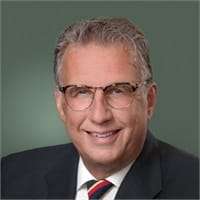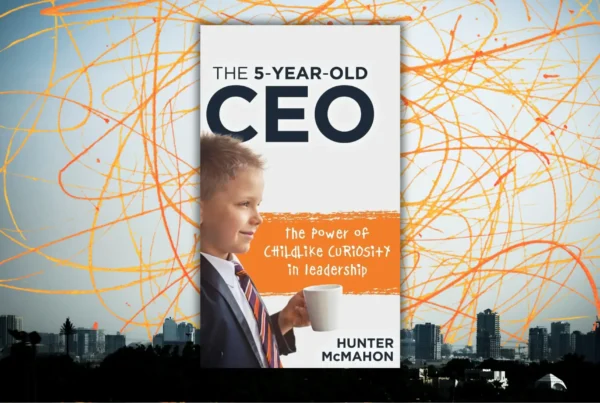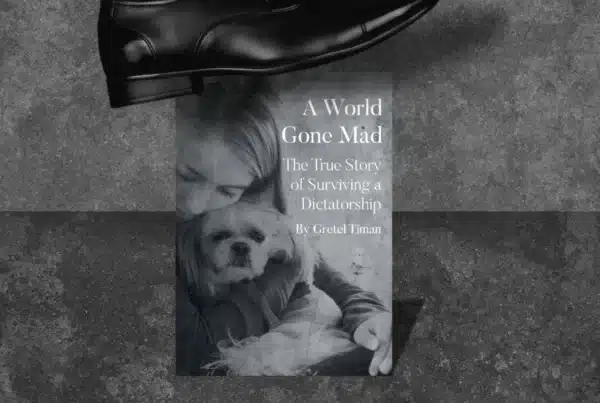Earlier this year, BookTrib interviewed Altair M. Gobo, certified financial planning professional and partner at U.S. Financial Services, LLC about his book, Getting to the Green: Golf, Financial Planning and Life, Not Necessarily in That Order. What stood out most from that interview was how easy it is to plan for the future. Most of the time, we think about saving and financial investments as being intimidating and costly; but Gobo reminds us that it is all in perception.
With the impending new year, everyone wants to know how to make a fresh financial start and save more in 2018 than in years past. I learned how I can maximize my savings while sitting down for a quick chat with Gobo. We addressed how to save for upcoming expenses as well as a special trip I am giving as a holiday gift in the new year!
Gobo broke it down for me in 5 simple tips for saving that will really yield big results in 2018. Here’s what I learned:
1. Plan as early as possible for future expenses
Even though we factor in the costs of living when planning for retirement, we often don’t factor in the costs of getting sick. While some may have health insurance that will follow them into the retirement years, most will rely on Medicare plans to help pay their healthcare expenses. Furthermore, we also may be charged with the healthcare expenses of elderly parents as well.
2. Best time to save for college for your children is when they don’t need it
Putting money away regularly in a college savings plan when your children are young is best. Look at projected costs to determine how much will need to be saved. Chances are what we pay now will not be what we play in the future.
3. It is never too early to teach our kid about financial responsibility
Helping a child to become financially literate is important so they not only learn the value of a dollar, but also to help them get in the habit of learning how to establish a budget, work toward a goal and employ some of the best practices that will follow them into adulthood. Find what motivates your child and speak to them about saving in those terms.
4. Diversify your investments
In golf, you are allowed to have 14 different clubs and each has a specific use; the same is true with investments. You should have different investments for different goals. Always diversify your investment portfolio with a combination of high, medium and low risk stocks. Seek a professional to guide you through the process, it is easier than you think. You wouldn’t use a driver when a putter is required, don’t take a one size fits all approach to your savings, either.
5. Cut back on certain unnecessary expenses
Cutting back on certain unnecessary items and saving that money can yield big rewards. A six dollar cup of coffee daily at five days a week is $30 a week. In a year that’s $1,560. If you save that for 10 years, you will have $15, 600 saved minus any interest earned. That’s a year’s college tuition (less room and board) at most state colleges and universities!
Planning for the future does not have to be a daunting task. It is relatively easy and is all a matter of perception. Having a copy of Getting to the Green is also a big help. Gobo make your budget easy to understand. This is a great gift for the holidays if you or someone you love is looking to start 2018 off on the right foot financially. You can also pay it forward as all proceeds from book sales will go to charity; you can help yourself and help someone else this holiday season.
6. Perception is Key
Gobo asks his clients if they can save $5,000 a year an most balk at the figure because the tendency is to think about it as a huge, one-time chunk of money. But asking a person who makes $50,000 annually if they can live on 90 percent of their income and without exception, the answer is “yes.” If that person saves the remaining 10 percent each pay period, in a year, they will have met the $5,000 saving threshold, effortlessly.
7. Pay Yourself First
Even though it is hard for many people to make ends meet, it is critically important to abide by this rule as best as one can because this is how we begin creating a safety net for ourselves in a climate where social safety nets are disappearing. Pay yourself as you pay your bills. Even a nominal amount like $10 can make a difference. Put it in a CD, Roth IRA, 401K or other type of savings investment account. Get in the habit of doing this because it makes a difference.
8. Exercise Caution Not Fear
Caution is what keeps us safe. We exercise caution in driving and in taking physical risks. We also exercise caution in saving and investing. With our money, as in life, there are some things we can control and there are others we cannot. While we cannot control the market, Gobo says we can control a few things like what e want to invest in and how much risk we want to take. These are things that are in our domain and benefit us most when we plan, and use caution, but we do not benefit if we allow fear to deter us from investing in the future.
9. Cut back on certain unnecessary expenses
Cutting back on certain unnecessary items and saving that money can yield big rewards. A six dollar cup of coffee daily at five days a week is $30 a week. In a year that’s $1,560. If you save that for 10 years, you will have $15, 600 saved minus any interest earned. That’s a year’s college tuition (less room and board) at most state colleges and universities!
10. Don’t Put Off Tomorrow What You Can Save Today
It is human nature to procrastinate to a degree. We always believe there will be a tomorrow where we can do the things we know we should be doing today. Sometimes it is because we just can’t see a way to make it work today and at other times, it is because the thought is uncomfortable. Getting older, the prospect of death or the loss of loved ones are among those things we tend to not want to think about, but they are critically important as we have seen in several high-profile cases where there weren’t wills or last wishes clearly stated for an estate. unless we make these decisions for ourselves, someone else will make them for us. No matter where you are in life, you can do a simple will and even if you are in your 40s, like me, you can save for retirement. If you start now, that’s 25 years worth of saving versus waking up one day at 65 and realizing you don’t have anything.
Gobo advises that we take long-term goals and turn them into long-term goals as we boost our financial IQ. Ask yourself what you want to happen in your future financially and take the necessary step to mke that happen because it is easier than you think. As Gobo says, “it is like golf, you have to think about the long game.”
Read a preview of Getting to the Green, buy a copy and share to social media:
ABOUT THE AUTHOR

Altair M. Gobo, CERTIFIED FINANCIAL PLANNER™ professional, is a partner at U.S. Financial Services, LLC. Altair has served on the board of directors of the Northern New Jersey Chapter of the International Association for Financial Planning as president and chairman. He has also served as an adjunct faculty member, faculty coordinator, and academic advisor for Fairleigh Dickinson University’s Financial Planning Program. In addition, he has served on the board of directors of Fairleigh Dickinson University’s Financial Services Institute. Altair has authored the book Getting to the Green, several published articles and has made guest appearances on CNBC, NBC, ABC, MSNBC, Fox News, Fox Business News, Bloomberg, and CNN.
Start your writing career with us, enter our memoir writing contest, you could become a Booktrib Contributor in 2018!





